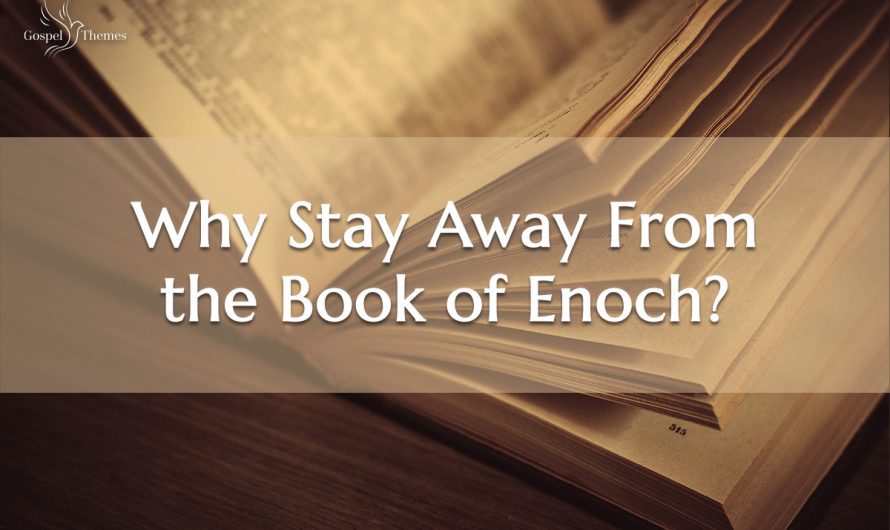"Why Stay Away From The Book Of" is an adverbial phrase that functions as an instruction or caution. For instance, in the context of spiritual or religious scriptures, it advises against engaging with a specific text.
Understanding this phrase is important because it unveils the relevance and significance of religious texts, often considered sacred or authoritative. Additionally, historical events, such as the Reformation, have shaped societal attitudes towards these texts.
This article will delve into the reasons why one may consider staying away from certain books, exploring both the historical and contemporary perspectives.
Why Stay Away From The Book Of
Understanding the reasons for staying away from certain books involves considering various essential aspects, including their potential impact on beliefs, social norms, and personal growth.
- Historical Context
- Cultural Beliefs
- Religious Doctrines
- Personal Values
- Psychological Impact
- Social Stigma
- Intellectual Growth
- Spiritual Development
- Ethical Considerations
These aspects are interconnected and influence the decision of whether or not to engage with certain books. For instance, religious doctrines may shape cultural beliefs, leading to social stigma around specific texts. Understanding these connections helps us navigate the complex landscape of book choices.
Historical Context
Historical context holds immense significance in understanding why people may choose to stay away from certain books. It encompasses the prevailing beliefs, cultural norms, and socio-political circumstances that shape attitudes towards specific texts.
- Religious Beliefs
Religious doctrines and beliefs have historically influenced the perception and acceptance of certain books. For example, the Catholic Church's Index of Forbidden Books prohibited the reading of specific texts deemed heretical or dangerous to faith.
- Political Ideologies
Political regimes have often attempted to control access to information and ideas by banning or burning books that challenge their authority or promote opposing ideologies.
- Cultural Traditions
Cultural norms and traditions can shape perceptions of certain books as sacred, taboo, or inappropriate for specific groups or individuals.
- Social Conventions
Societal conventions and expectations can influence the decision to avoid certain books due to fear of disapproval, social stigma, or ostracism.
Understanding the historical context provides a deeper appreciation of the reasons why people may have chosen to stay away from certain books throughout history. These factors continue to play a role in shaping attitudes toward books even today, highlighting the enduring influence of historical context on our interactions with literature and knowledge.
Cultural Beliefs
Cultural beliefs play a significant role in shaping attitudes towards books and influencing the decision to stay away from certain texts. These beliefs are deeply ingrained in societal norms, traditions, and values, influencing how people perceive and interact with literature.
- Religious Beliefs
Religious doctrines and ideologies can shape cultural perceptions of specific books as sacred, blasphemous, or heretical. This can lead to prohibitions, restrictions, or avoidance of certain texts based on religious teachings and interpretations.
- Social Customs
Social customs and norms can influence attitudes towards books that challenge traditional values, norms, or social hierarchies. Fear of social disapproval or ostracism can lead individuals to avoid books that may disrupt established social orders.
- Political Ideologies
Political ideologies can shape perceptions of books as subversive, threatening, or supportive of opposing political views. Censorship and book bans are often used to suppress or control access to texts that challenge or critique prevailing political ideologies.
- Cultural Taboos
Cultural taboos can dictate which books are considered inappropriate, offensive, or taboo within a specific cultural context. These taboos may relate to topics such as sexuality, religion, or historical events, influencing the decision to avoid certain books due to fear of causing offense or transgressing social boundaries.
Cultural beliefs, encompassing religious doctrines, social norms, political ideologies, and cultural taboos, exert a powerful influence on why people may choose to stay away from certain books. Understanding these beliefs provides a deeper appreciation for the complex dynamics that shape our interactions with literature and knowledge.
Religious Doctrines
Religious doctrines, within the context of "Why Stay Away From The Book Of," hold significant sway in influencing attitudes and decisions regarding the avoidance of certain texts. These doctrines, deeply rooted in religious beliefs and teachings, shape perceptions of what constitutes sacred, profane, or even dangerous knowledge.
- Sacred Texts
Religious doctrines often designate specific texts as sacred or holy, instilling a sense of reverence and caution in their handling. These texts, considered the embodiment of divine truths or revelations, may be protected from scrutiny or criticism to preserve their perceived sanctity.
- Prohibited Content
Religious doctrines may explicitly prohibit certain content or ideas, deeming them heretical, blasphemous, or otherwise harmful to faith. This can lead to censorship, book bans, and severe consequences for those who possess or disseminate such materials.
- Interpretive Authority
Religious doctrines often grant interpretive authority to specific individuals or institutions, who are tasked with safeguarding the integrity of sacred texts and ensuring adherence to religious tenets. This can lead to the suppression of alternative interpretations or critical readings that challenge established dogma.
- Social Stigma
Religious doctrines can foster a sense of social stigma around certain books or ideas, influencing individuals to avoid them due to fear of ostracism or condemnation. This stigma may extend beyond religious communities, shaping societal attitudes and perceptions of what is considered acceptable reading material.
These facets of religious doctrines highlight their profound impact on shaping attitudes towards books and influencing the reasons why individuals may choose to stay away from certain texts. Understanding the role of religious doctrines in this context provides a deeper appreciation for the complex dynamics that govern our interactions with literature and knowledge.
Personal Values
Personal values play a pivotal role in shaping individuals' decisions and behaviors, influencing their choices and actions, including those related to literature and knowledge. In the context of "Why Stay Away From The Book Of," personal values serve as a guiding force, shaping attitudes towards certain texts and informing the reasons for avoiding them.
Personal values are deeply rooted in one's upbringing, experiences, and beliefs, forming a unique moral compass that guides decision-making. These values can be diverse, encompassing beliefs about what is considered right or wrong, good or bad, acceptable or unacceptable. When it comes to books, personal values can influence perceptions of what constitutes appropriate or inappropriate reading material, based on factors such as religious beliefs, political ideologies, or cultural norms.
For instance, individuals who value religious piety may choose to stay away from books that challenge their faith or contain content deemed blasphemous or heretical. Similarly, those who prioritize political conservatism may avoid books that promote opposing ideologies or critique established social orders. Personal values can also influence decisions based on social or cultural norms, such as avoiding books that may cause offense or transgress societal boundaries.
Understanding the connection between personal values and "Why Stay Away From The Book Of" is crucial for gaining insights into the complex dynamics that shape our interactions with literature and knowledge. It highlights the role of personal beliefs and values in influencing our choices and actions, and underscores the importance of critical thinking and open-mindedness in navigating diverse perspectives and ideas.
Psychological Impact
The psychological impact of books cannot be overlooked when considering "Why Stay Away From The Book Of". Books possess the power to shape thoughts, emotions, and behaviors, influencing our perception of reality and our place within it.
- Cognitive Distortion
Books can introduce us to ideas that challenge our existing beliefs and values, potentially leading to cognitive dissonance and psychological distress. This can be particularly true for books that present extreme or controversial views.
- Emotional Distress
Books can evoke powerful emotions, including fear, sadness, anger, and guilt. In some cases, exposure to emotionally charged content can be overwhelming and lead to psychological distress.
- Psychological Trauma
Books that depict traumatic events or experiences can trigger psychological trauma in susceptible individuals. This can be especially true for individuals who have experienced similar events in their own lives.
- Addiction
Certain types of books, such as those in the romance or thriller genres, can be highly addictive. This can lead to excessive reading, which can interfere with daily life and responsibilities.
These facets of psychological impact highlight the profound influence that books can have on our mental well-being. Understanding these impacts is crucial for making informed decisions about which books to read and how to engage with them in a healthy and balanced way.
Social stigma is a significant factor contributing to "Why Stay Away From The Book Of". It refers to the negative social attitudes and beliefs attached to certain behaviors, attributes, or affiliations. In the context of literature, social stigma can influence individuals' decisions to avoid specific books due to perceived disapproval or fear of social rejection.
Social stigma often arises from cultural norms, religious beliefs, or political ideologies that shape societal perceptions of what is considered acceptable or unacceptable. Books that challenge these norms, question established beliefs, or explore controversial topics may attract social stigma, leading individuals to avoid them to conform to social expectations and avoid potential negative consequences.
For instance, in certain religious communities, books that question or criticize religious doctrines may be met with social stigma, leading individuals to avoid them to maintain their standing within the community. Similarly, in politically polarized societies, books that express dissenting political views may be stigmatized, deterring individuals from engaging with them to avoid social disapproval or ostracism.
Understanding the connection between social stigma and "Why Stay Away From The Book Of" is crucial for promoting intellectual freedom and open discourse. It highlights the role of societal pressures in shaping reading choices and the importance of challenging stigmas that limit access to diverse perspectives and ideas.
Intellectual Growth
The connection between "Intellectual Growth" and "Why Stay Away From The Book Of" lies in the potential conflict between intellectual curiosity and the fear of challenging established beliefs or social norms. Intellectual growth often involves questioning and critically examining existing ideas, which can lead individuals to encounter books or perspectives that challenge their current worldview.
In such cases, the pursuit of intellectual growth may necessitate confronting uncomfortable truths or engaging with perspectives that are deemed controversial or taboo within certain social or cultural contexts. This can lead individuals to avoid certain books out of a desire to maintain their existing beliefs or to avoid potential social disapproval or ostracism.
Real-life examples of this dynamic can be found in historical and contemporary contexts. For instance, during the Enlightenment period, individuals who embraced intellectual growth and critical thinking often faced opposition from religious authorities and established institutions that sought to suppress dissenting ideas. Similarly, in modern societies, individuals who challenge prevailing political or social norms may face social stigma or discrimination.
Understanding the connection between intellectual growth and "Why Stay Away From The Book Of" is crucial for fostering a society that values critical thinking, open discourse, and intellectual freedom. It highlights the importance of creating environments where individuals feel safe to explore diverse perspectives and challenge established beliefs without fear of judgment or reprisal.
Spiritual Development
The relationship between "Spiritual Development" and "Why Stay Away From The Book Of" stems from the potential conflict between spiritual beliefs and the content or ideas presented in certain books. Spiritual development often involves a journey of self-discovery, exploration of one's inner life, and connection to a higher power or transcendent reality. This journey may lead individuals to question their existing beliefs, seek deeper meaning, and embrace transformative experiences.
In some cases, individuals may encounter books or perspectives that challenge their spiritual beliefs or practices. This can create a sense of cognitive dissonance, leading them to avoid such books to maintain their spiritual equilibrium or to avoid potential spiritual confusion or distress. Real-life examples of this dynamic can be found in various religious traditions, where individuals may choose to abstain from reading texts that are seen as conflicting with their faith or spiritual practices.
Understanding the connection between "Spiritual Development" and "Why Stay Away From The Book Of" highlights the importance of respecting individuals' spiritual journeys and beliefs. It also emphasizes the need for critical discernment and open-minded exploration in balancing spiritual development with exposure to diverse perspectives and ideas. By fostering a supportive environment where individuals feel safe to explore their spirituality and engage with different viewpoints, we can promote both spiritual growth and intellectual curiosity.
Ethical Considerations
The connection between "Ethical Considerations" and "Why Stay Away From The Book Of" lies in the potential conflict between ethical values and the content or ideas presented in certain books. Ethical considerations involve our moral principles, values, and beliefs about what is right and wrong, just and unjust. When individuals encounter books that challenge their ethical principles or promote actions that they deem unethical, they may choose to avoid such books to maintain their moral integrity and avoid complicity in promoting unethical behavior.
Real-life examples of ethical considerations influencing decisions to avoid certain books can be found in various contexts. For instance, individuals who strongly value honesty and integrity may avoid books that glorify or unethical practices. Similarly, those who prioritize social justice may choose to abstain from reading books that perpetuate harmful stereotypes or promote discrimination.
Understanding the connection between ethical considerations and "Why Stay Away From The Book Of" highlights the importance of critical discernment and ethical literacy in our reading choices. By considering the ethical implications of the books we read, we can make informed decisions about what content we engage with and avoid contributing to the spread of harmful ideas or behaviors. This understanding empowers us to be responsible readers and active participants in shaping a more ethical and just society.
In conclusion, our exploration of "Why Stay Away From The Book Of" has illuminated the multifaceted reasons that may lead individuals to avoid certain books. We have examined the influence of historical context, cultural beliefs, religious doctrines, personal values, psychological impact, social stigma, intellectual growth, spiritual development, and ethical considerations on reading choices. These factors are interconnected and can shape our attitudes towards books and knowledge.
Understanding the diverse reasons for staying away from certain books highlights the importance of critical thinking, open-mindedness, and intellectual freedom. By recognizing the potential benefits and risks associated with engaging with different perspectives, we can make informed decisions about our reading choices. This empowers us to navigate the vast world of literature and knowledge with discernment and to foster a society that values diverse voices and encourages the pursuit of truth and understanding.



Detail Author:
- Name : Abdullah Ryan
- Username : vfranecki
- Email : sskiles@conn.org
- Birthdate : 1991-01-02
- Address : 94436 Zella Cliff East Darrenbury, WV 31208-2744
- Phone : +1-212-778-3339
- Company : Kris-Olson
- Job : Architectural Drafter OR Civil Drafter
- Bio : Et animi voluptatem minima eaque dolorem. Doloremque repellendus molestias quo et enim et. Ab doloribus ducimus enim ducimus ratione odio. Voluptas et consequatur cupiditate fuga delectus.
Socials
facebook:
- url : https://facebook.com/floyd_wintheiser
- username : floyd_wintheiser
- bio : Soluta deleniti eius expedita vero. Natus corrupti eaque et dolorum.
- followers : 5303
- following : 1562
tiktok:
- url : https://tiktok.com/@floyd.wintheiser
- username : floyd.wintheiser
- bio : Blanditiis nemo aliquid consectetur occaecati ut et saepe sit.
- followers : 5875
- following : 1374
instagram:
- url : https://instagram.com/floyd_dev
- username : floyd_dev
- bio : Nihil tenetur molestias impedit autem illo aut doloribus. Qui unde eveniet provident voluptatum.
- followers : 4535
- following : 2625
linkedin:
- url : https://linkedin.com/in/fwintheiser
- username : fwintheiser
- bio : Error delectus aut adipisci et.
- followers : 380
- following : 2530
twitter:
- url : https://twitter.com/wintheiserf
- username : wintheiserf
- bio : Ut voluptatibus id aut nemo dolores est in. Velit voluptas maxime provident voluptate quidem. Quae quod sed quibusdam sequi.
- followers : 360
- following : 1972